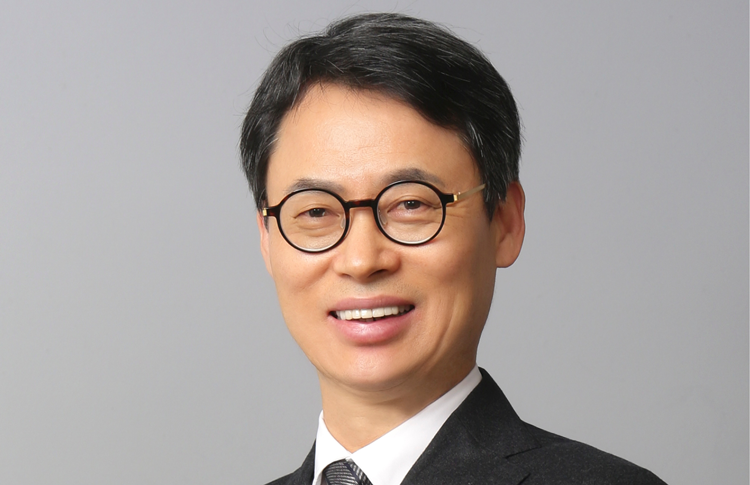
As lawyers in Asia continue to work hard under the challenges of a sustained global pandemic, the pressure is on managing partners to guide their teams through a rapidly changing landscape.
Kyu Chul Lee, managing partner of South Korea’s DR & AJU, tells Asian Legal Business that, while testing, the past few months have provided his team with plenty of learning opportunities.
ALB: In South Korea, where there are still pandemic-related restrictions, how have you adapted the way you work as a team to serve clients’ needs?
Lee: We consider the safety of our members who work here as the top priority. We have since amended and re-drafted various new rules and regulations to deal with the pandemic. For example, our staff are now organised in groups with different work hour shifts to ensure they do not have to come into the office during rush hour, and we have altered our ways of working to allow remote working environment in different degrees depending on the nature of the work. In the current contact-free work environment, we are not only using a cloud-based system to complete group tasks effectively, but also upgrading our internal case management system and research system. Our AI research project to upgrade our internal system has been recently selected as one of the legal AI projects to be supported by the government, thus we expect to adopt the AI legal document search and analysis engine to our office in the second half of this year.
Overall, while we are avoiding in-person meetings with clients as much as possible due to the COVID-19 pandemic, but instead, we have tried to diversify other contact-free channels to reach our clients. For example, we are expanding the ways we keep our clients and potential clients updated on legal developments by providing more diverse online reports or newsletters. We are also enforcing our online presence by upgrading our firm’s website and using more social networks, and online global platforms like ALB. Lastly, our activities have been shifted from in-person seminars to more webinars to deal with important social issues such as the Serious Accident Punishment Act and ESG-related matters.
ALB: What are your firm’s priorities for 2021-22?
Lee: Recently, we have prioritised enhancing our expertise by practice groups. We are undergoing team reorganisation and restructuring to maximise the way our lawyers can perform. Furthermore, expanding to new business area in response to the volatile legal market and clients’ needs. Internally, constantly amending and upgrading our evaluation system and reward system to further incentivise and reward our lawyers as well, as improving our work environment with technology is a key priority. Finally, enhancing awareness of ESG for sustainable development and expanding our own practice is our firm’s big focus as well.
ALB: What are some of the things which have surprised you about your firm since the pandemic began?Lee: Due to the lasting pandemic situation, uncertainties in the legal market are growing. However, we think we are handling this unpredicted situation better than we expected, thanks to our members’ collaborative efforts to overcome this unprecedented time. As the managing partner, I was deeply impressed and grateful to our members who showed strong support and understanding to place the firm’s future first rather than personal interests to overcome this pandemic situation. People say a crisis can lead to opportunities, so I strongly believe that we will grow into an even stronger and more united firm after the pandemic.
“We strongly believe that technology will dramatically reshape the work environment of law firms. We think law firms need to pay attention to AI technology or legal technology to actively respond to the volatile changes of legal market.”
-KYU CHUL LEE
ALB: Does technology play a bigger role in your firm as a result of the pandemic?
Lee: The entire world, as well as Korea, are facing unprecedented changes due to the COVID-19 outbreak. As we all know, contact-free communication has become the new norm for us. As a law firm, we now hold more online meetings than offline meetings and hold more webinars than in-person seminars. Overall, there has been a big change in the way we communicate with our potential clients as well as our clients. We take this chance to actively introduce more technology to improve work efficiency. Most of the communication, including meetings and training, are now conducted online. To promote this, our lawyers have been provided with the most updated tablet computers. We also have been the first Korean law firm to introduce an AI attorney, even before the pandemic. We strongly believe that technology will dramatically reshape the work environment of law firms. We think law firms need to pay attention to AI technology or legal technology to actively respond to the volatile changes of legal market. Our AI project has been selected as the ‘AI voucher support project’ for the legal sector by the Ministry of Science and ICT and the National IT Industry Promotion Agency (as part of national AI strategy in 2019 to introduce AI to Korean corporates and support technology development). We are currently cooperating with AI-specialised firm, Intellicon, to develop a high-tech AI legal document search and analysis engine, and expecting to actively use the AI legal document search and analysis solution in our office at the end of 2021. It is expected that our legal service will be improved significantly in terms of quality and efficiency based on the primary research through AI and plus, our attorneys’ professional reviews.
To contact the editorial team, please email ALBEditor@thomsonreuters.com.


